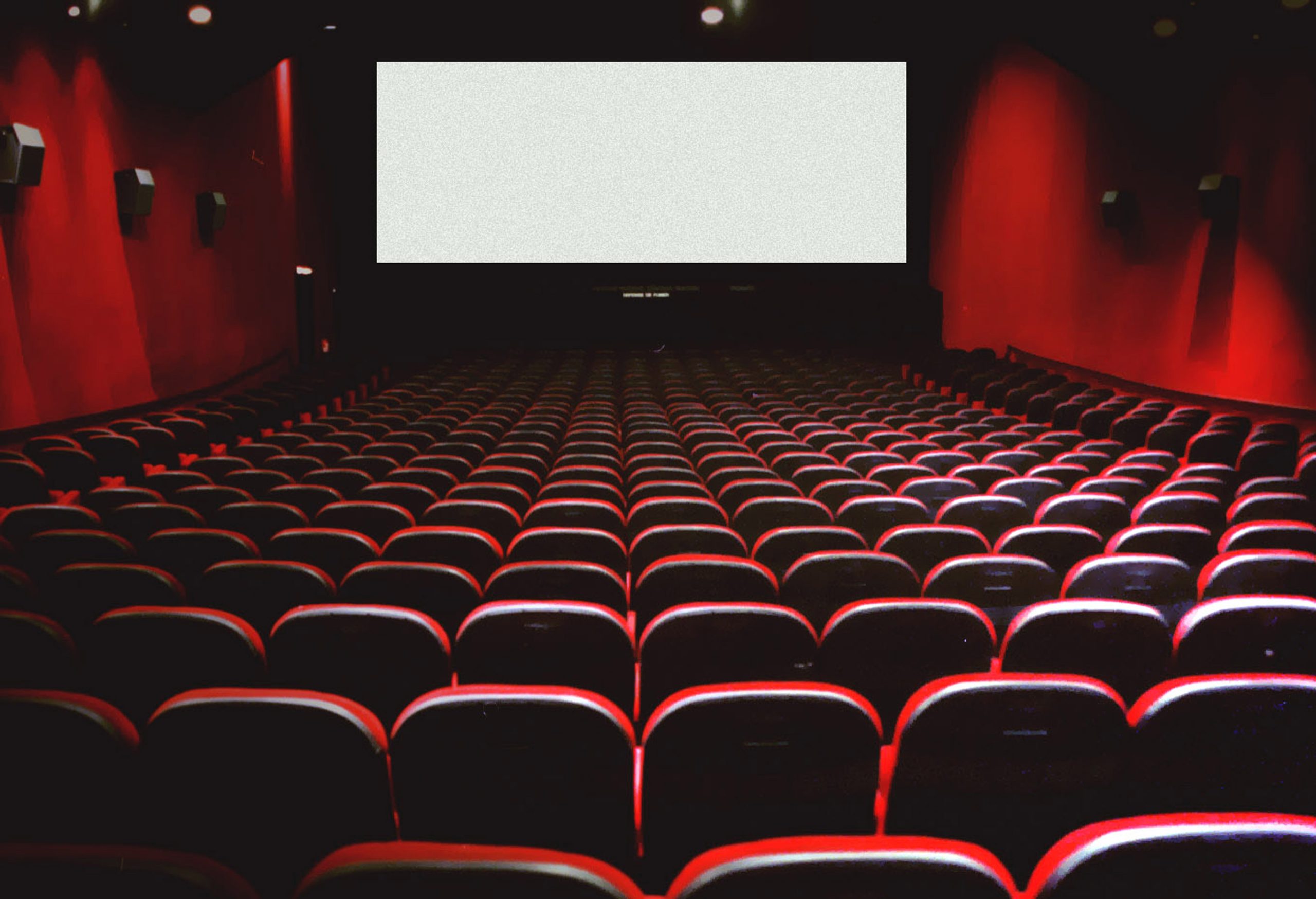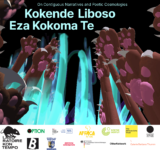Oris Aigbokhaevbolo
Oris Aigbokhaevbolo investigates the politics of inclusion (and exclusion) of African movies at The Berlin Film Festival, highlighting Nollywood’s commercial approach to film-making and the problems it poses.

The opening sentence of an article in a recent edition of The Hollywood Reporter reads, “This could be the year that films with African-American themes break the colour barrier.” Here’s how it ends: “…there is room to celebrate, but the problems are still there.”
All at once, the optimistic tone of the opening sentence is subsumed by the tempered scepticism of its closer. This piece has been written several times—in fact, it’s written every time an African-American picture achieves any form of success at the global box-office. The idea, which prevails still, is that a single triumph announces the beginning of a winning streak. Of course, it never happens that way. But hope springs eternal. So the The Hollywood Reporter piece mentions The Help, 12 Years A Slave and The Butler, all successful, yet too sparse in number to make a point about opportunities for African-American cinema.
If we switch the geography from North America to Africa, the situation hardly looks different, especially at European festivals, which, short of Jerry Bruckheimer arriving on set in Lagos, are the most accessible means of cracking the international scene. The big three—Venice, Cannes, Berlin—attract influential producers, directors, reporters, and investors. But, save for films from South Africa, these festivals may not include many entries from Sub-Saharan Africa.
What may be responsible for the dearth?
“Programmers are not educated about Africa,” says Jean-Pierre Bekolo, a Cameroonian director whose debut feature Quartier Mozart won a prize at Cannes in 1992, and went on to enjoy a somewhat storied run at European festivals. “Yet we cannot blame the platforms because we are not producing enough items that are stunning.”
Perhaps western programmers aren’t quite uneducated as much as miseducated. Take, for example, two films from the continent showing at this edition of the Berlinale: Mark Donford-May’s Breathe Umphefumlo and the South Africa, Uganda, and Kenya coproduced feature, The Boda Boda Thieves.
Donford-May’s Breathe Umphefumlo adapts ‘La Boheme,’ Puccini’s opera about youth, poverty, and death, inevitably offering a contemporary reinforcement of ancient stereotypes about Africa. Offering scant in the way of innovative film-making, The Boda Boda Thieves has a poor family as its centre— a father struggling to make ends meet by riding a commercial motorcycle in Kampala, a mother breaking rocks for a pittance, and a child forced to earn a living for the family when their father is injured. Also, as the title makes clear, there is a theft. Africa remains the heart of some kind of cinematic darkness. Or, to quote Dorothee Wenner at the Berlinale Talents Story Worlds panel, “to apply for funding, everyone wants a typical African film.”
Wenner is charged with illuminating that darkness. And there are no points for guessing what she refers to as the typical African film.
The Berlin Film Festival programmed eleven films from the subcontinent for its 65th edition. Eleven films in a festival showing hundreds is a dismal percentage; yet for its unprecedented number, it is a minor miracle. That within those films, a basis for neo-stereotyping can be found is perhaps inevitable. As Wenner avers “we are working a whole lot to show Africa in the 21st century.”
If the festivals are going beyond their mandate into the subcontinent to seek out exciting film-making, then perhaps African film-makers are themselves complicit in the lack of showing at the big European festivals. The Berlinale has gotten stricter with requirements in recent years: the films that screen at the festival are expected to be at the minimum, European premieres. A requirement which puts it at odds with smaller festivals taking place before its usual February run. Wenner puts it rhetorically, “How many films from the subcontinent would qualify?” It is a fair point that film-makers from the continent are not prepared to go set up their films for the big premiere at a big festival. Producers are likely to, and do, take their fare to the audience, notably in Nollywood—Africa’s most productive film industry.
Unfortunately, at these festivals prolificacy is not rewarded with screenings; its returns in Europe are the intangible currency of curiosity. A few years ago, a sidebar was created for Nollywood at the Berlinale. Then, as now, it was treated as a phenomenon—in perhaps the most reductive sense of the word. Reacting, the Nigerian contingent, proud and stubborn, decided it wanted to be treated normally—in the most inflated sense of the word. The result was a dwindling, culminating in a total disappearance from the 2015 Berlinale catalogue.
For Christoph Terhechte, Head of Forum—the section of the Berlinale created to ‘transform the cinema into a place of cultural exchange’ which, the argument goes, makes it the ideal space for African cinema—Nollywood is fare targeted at a local audience and much of it is tied closely to the industry’s commercial approach to film-making. The emphasis on an artistic, or if you may, an auteur-ist vision, means exclusion. Yet in the early days of Asian cinema, films were made for the local audience with nary a thought given to the international market. Today, Asian film-making, the toast of festivals, occupies a unique space in European programming.
An inevitable question arises: Are certain cultures more transferrable than others?
A selection of the handful of films show that the answer may be an unequivocal yes. The Boda Boda Thieves is exceptional in its pandering with its use of gratuitous shots of stickers and posters of European football clubs. The young protagonist living in Kampala is a Chelsea fan; thus he puts a sticker of the London club on his motorcycle’s silencer. Later the audience is treated to an image of Spanish club Real Madrid’s Cristiano Ronaldo. Donford-May’s Breathe Umphefumlo has its characters yodelling Puccini’s ‘La Boheme’ in Xhosa. Cinema may be the popular art, but the idea as presented by these films is that it may help to lend the European audience pitons from its own culture to tackle the African cinema monolith.
Bekolo’s own 2015 Berlinale feature Mudimbe’s Order of Things— showing predictably in Forum Expanded— adopts a similar approach, but obliquely. Rather than pander, he has chosen to educate. An interview with Congolese philosopher, academic, and uber-polymath V.Y Mudimbe, ‘Order of Things’ goes on for four hours, a sly assertion by the Cameroonian director of the weight of African thought. Europe hovers over the proceedings, less as presence than as provocation to which Bekolo’s documentary is a reaction.
Imperfect as these are, they occupy the place accorded Africa at this year’s edition of one of Europe’s biggest festivals. Mostly devoid of heartening content, those looking for diversity in the festival space can probably rejoice, if only for the unprecedented number.
In the end, how truly ‘international’ is an international film festival if it excludes a vast proportion of countries from the world’s second-largest continent?
Oris Aigbokhaevbolo is a freelance writer and film critic. He’s covered film festivals in Lagos, Abuja, Jos, Durban, Rotterdam, Ouagadougou and Berlin; and has had work published by the Guardian UK, Chimurenga and This is Africa. In early 2014, Oris was selected for South Africa’s Talent Campus Durban. In the same year he was invited to the Netherlands’ Young Critics’ Project at the International Film Festival Rotterdam and Germany’s Talent Press at the Berlinale, becoming the first critic selected for all three programmes in a single year. He lives in Lagos.
(This article was first published by tns.ng)






